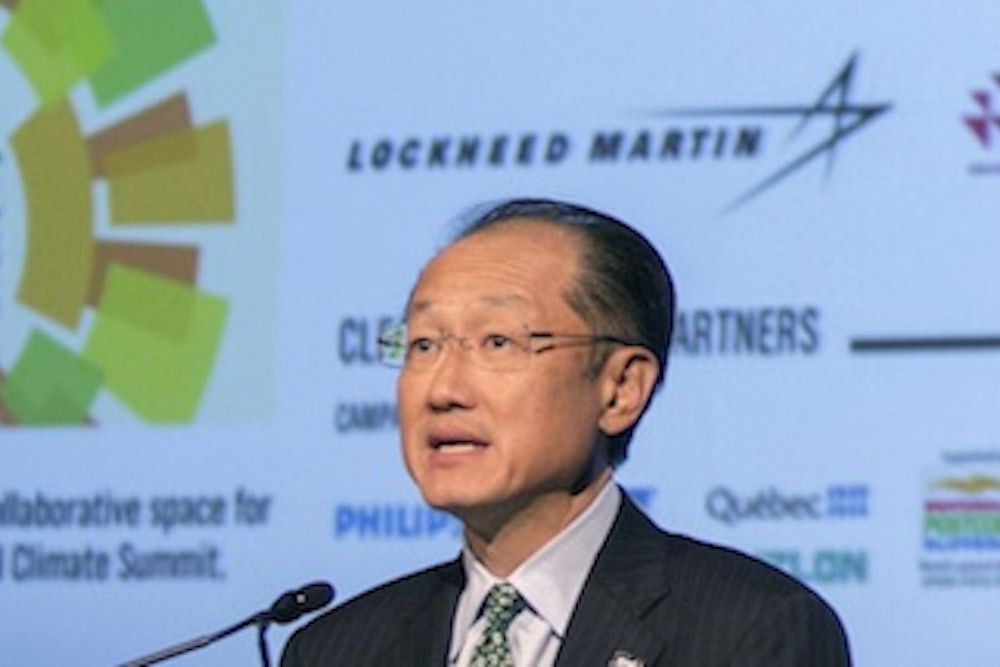Who says there’s never good news on climate change? On Monday, the day before the official start of the United Nations Climate Summit, the World Bank announced that 73 nations and 22 states have each agreed to put some kind of price on carbon, thereby taking the most obvious and direct step towards controlling greenhouse gases. The countries include some of the largest polluters on the planet: China, Russia, the European Union, and Mexico. Collectively they cover 54 percent of global greenhouse gasses and over half of global GDP. In other words, they represent about half the population of the world.
Even last year, this seemed like it might be out of reach. Consider that in June the World Bank hoped for "over 50 governments, national or sub-national, and hundreds of companies to stand up and be counted as supporters" of putting a price on carbon. Monday’s announcement means the World Bank reached and exceeded those targets. (In the case of China, it was because the government has indicated it will act by 2016.) Meanwhile, more than 1,000 companies also signed the statement of support.
There are, of course, lots of different ways to put a price on carbon. A country can simply tax emissions—or create a system of tradeable emission permits, which is what the Chinese have said they will do. Either way, the idea is to put a cost on pollution that accounts for its real, if not immediately apparent, impact on the climate. Economists love this approach to controlling pollution and, sometimes, so have conservatives. By itself, it won't solve the key issue of rising carbon emissions, But, if done right, so that hurts a bit, with escalating cost over time, it can change decision making.
It’s one thing for governments and businesses to pledge their support for the idea of a price on carbon—quite another to actually make sure one is implemented. The World Bank isn't embracing any specific recommendation for "how it can be done" on pricing carbon, but Special Envoy for Climate Change Rachel Kyte admitted the ultimate goal—to "drive carbon out of the economy" with what's effectively a tax."We are working with countries that want to introduce taxes, we’re working with countries that want to introduce trading systems, and we’re working with countries that want to use other fiscal policy measures and reduce harmful subsidies and other instruments of choice," she said on a press call.
